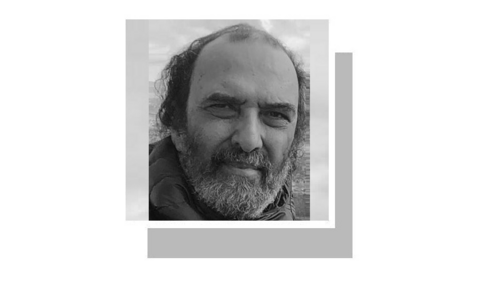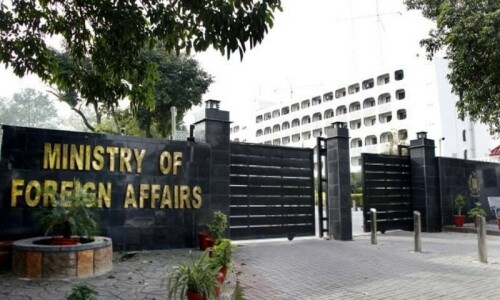TO be a member of a political party and taking part in politics is a fundamental right the Constitution confers on all citizens. However, there are legal restrictions on the exercise of these rights for those employed in the service of Pakistan. The Conduct Rules explicitly prohibit civil servants from taking part in political activity, while the oath of commissioned officers of the armed forces forbids them from indulging in political pursuits. The objective is to deter serving civil servants and military personnel from exerting influence on political and electoral processes by virtue of the powers they enjoy within the state.
The prohibition on politicking extends to recently retired civil servants and members of the armed forces. The retirees are forbidden from engaging in politics for two years after superannuation, and for up to five if they have served on ‘sensitive duties’ in the forces. The purpose seems to be to limit the influence which recent retirees may continue to exercise on institutions beyond their service period. But while civil servants who violate the two-year rule can expect the forfeiture of their post retirement compensation (pension) and other perks, the consequences for armed forces retirees are now far more severe. The newly inserted Section 26B in the Army Act has made violation of the prohibition on political activities for retired army personnel punishable with rigorous imprisonment of up to two years. The offender is to be tried in a court set-up under the Army Act, ie, face court martial.
Article 8 of the Constitution, which voids all laws in derogation of fundamental rights, is not applicable to “any law relating to members of the armed forces, or of the police, or of such other forces as are charged with the maintenance of public order, for the purpose of ensuring the proper discharge of their duties or the maintenance of discipline among them”.
However, while placing restrictions on the participation of serving armed forces personnel in political activities has a sound rationale — it keeps them out of political wrangling, maintains discipline, and ensures they carry out their duties appropriately — the amended Army Act seems to take violations of this prohibition by ex-servicemen far more seriously than the violations committed by serving ones. It is perplexing why the law has been made more stringent in its application for those who have left service when the actions of serving military personnel, who are supposed to be the principal subject of the prohibition, continue to be exempt from similar scrutiny.
Civil liberties of some citizens have been quietly taken away.
The lack of explanation for this contradiction is why the recent amendments to the Army Act seem to go beyond the spirit of the Constitution. More concerning is the fact that a fundamental right has been criminalised for a particular category of citizens. As briefly discussed earlier, the limit on public servants’ and armed forces personnel’s right to participate in political activities was introduced only so that other citizens could exercise their political rights more freely. It would seem unreasonable that a violation of this restriction ought to be seen as a criminal act instead of simple misconduct, especially if the individual committing the said violation is no longer in active service.
Indeed, criminalising what is a fundamental right for someone no longer in service of the state seems akin to challenging the wisdom of the Constitution itself. Even extending the period of proscription for retired civil servants and members of the armed forces to five years or even for life can be justified, but making its violation a cognisable offence is going too far.
It is worrying to contemplate that the fundamental rights and civil liberties of some citizens have quietly been taken away without challenge.
The complete silence of human rights organisations and civil society against such arbitrary law-making is regrettable. It would seem from their apparent lack of concern that even more vocal organisations, like the Human Rights Commission of Pakistan, have tacitly accepted this circumscription of civilians’ rights as fait accompli.
A new jurisprudence is taking root whereby martial law edicts are being implemented with a parliamentary nod. If their silence is based on the premise that criminalising political activity for retired armed forces personnel affects just a few, or that some specific personalities need to be restrained for the time being, they have abandoned their cherished ideals. Today, it may be one segment of society; tomorrow, more excuses will be found to extend such restrictive laws to other sections of society as well. Civil society must respond more robustly to defend against the gradual encroachment of constitutionally given rights.
The writer is a retired joint director general of the Intelligence Bureau.
Published in Dawn, November 4th, 2023










































